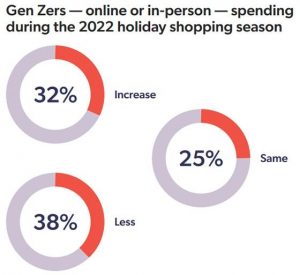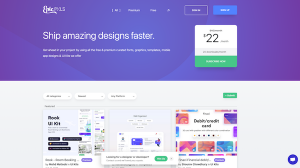— October 23, 2017
![]()
When visitors come to your website they want to know if you understand their issues and can help them.
I have found many businesses falter when it comes to connecting with potential customers. They write about their products and services but forget it’s really about the customer and what they are needing when they visit a website.
That’s why using your ideal client avatar to create a “who we help” page on your website is important. It helps your website visitors self identify if they are your ideal customer.
Once you connect to someone on that deeper level it’s easy for them to take the leap to hiring you.
So how do you go about creating an ideal client avatar for your “who we help” page? There are 4 basic parts to this: who they are, what their issues tend to be, what they need right now, and what they should do.
Grab a piece of paper and let’s dig in.
Part 1: Their Identity
Sit down and picture your ideal client. The key to doing this effectively is to drill down to one perfect customer and go deep:
- Who is your all time favourite ideal customer?
- Who got tremendous value out of working with you and are incredibly grateful for it?
- Who is more than happy to pay you?
- Who often refers other people to you?
- Who gives you a lot of joy when you work with them?
This is the kind of “A-list” ideal client you want to attract more of to your business.
It is often helpful to give them a full avatar identity, a fictitious profile that embodies the persona of your ideal client. Write a short paragraph describing all about this person. You want potential clients to read this and say, “wow that’s me!”
Itemize details such as:
- Full name
- Age
- Industry
- Their passion
- Their current state, whether in personal or professional life
- Profession
- Income level
- Interests and passions
Example: I love working with clients like Jenna Anderson. She is a 54-year-old owner of a small fashion boutique. Her passion is helping women find clothing that celebrates their sense of style and helps them feel ageless.
Her boutique is successful and she is working to open a new clothing line this fall to expand her offerings.
Part 2: Their Issues
Write a short paragraph describing the worries and issues keeping them up at night. Ask yourself what needs are unmet for them? Write a sentence that specifically shows how they feel about this.
Example: Her issues tend to be that she is so busy with the day-to-day needs of her business that she doesn’t have time to focus on creating the designs for her new line. She needs to hire some new employees to help out but is having trouble finding women who are a fit.
Running the store and doing the bookwork keeps her so busy she doesn’t have time to work on next steps for her business. She needs some help hiring new help, delegating and creating a game plan.
Part three: Their Pressing Needs
Give specific examples of what “the solution” would look like. Say how they would feel about having that kind of relief in their life.
Example: What she needs most right now is someone to help her write effective job descriptions so she can hire a stronger sales team for the store. She also needs to look at what is on her plate and how she can have her team members take some of that off her shoulders.
She needs someone who is a coach and a cheerleader to push her to create her designs and get them into production. It would be thrilling to finally see her visions come to life. She would love to have some go-getter employees who feel the same passion she does for empowering women with clothing that makes them feel confident and strong.
Part four: Their Next Step
Now that we have their attention and have generated interest and desire, it’s time to have them take action. Tell them how they can get started working with you.
Think about what their next step should be. Is it a discovery call or initial consultation? What program offering would help them? Is there a product that would show them how to fix it themselves? Or do you offer a done-for-you service to tackle this problem for them?
Example: You’re invited to have a free breakthrough session where we can look at where your business is at, what challenges you are facing, what opportunities you have, and how we can help you bridge the gap to achieve your desired goals.
Click here to schedule your free breakthrough session now.
Defining Your Avatar Helps You Personalize Your Marketing
Now that you know who your ideal client is, what they need, and how you can help them, you can now create a “Who We Help” web page that directly speaks to them. You could also sprinkle in some of your most impactful testimonials to further reinforce how you can help your ideal client.
The added bonus of defining your ideal client avatar is that it helps you write in a very personable way in your marketing. This enhances and escalates the “Know, Like and Trust” factor you want to achieve with your followers.
It completely transforms the impact of your writing when you make it personal and connective. In my own marketing, I write a newsletter or email piece directly to my ideal client. I often have our email subscribers write back personally as if I had written directly to them.
Digital & Social Articles on Business 2 Community
(84)
Report Post



